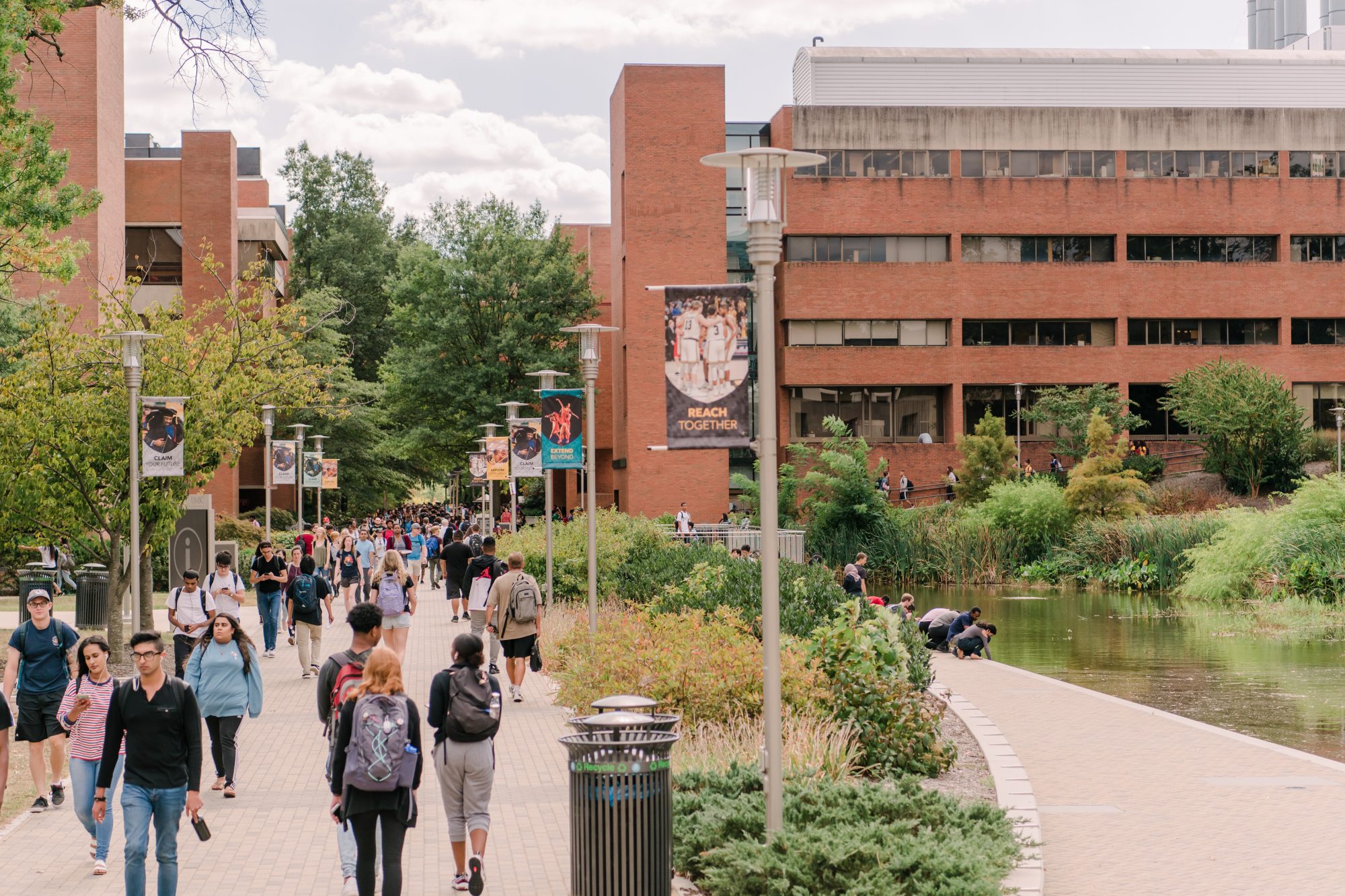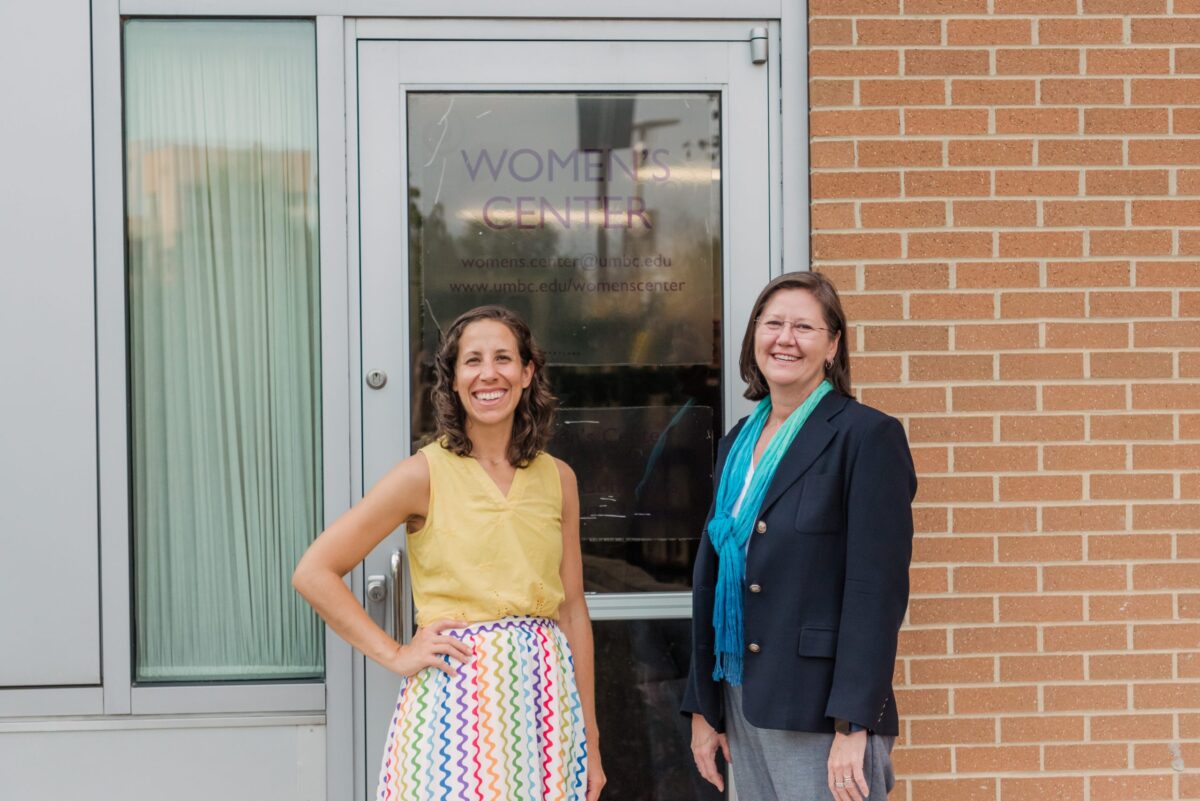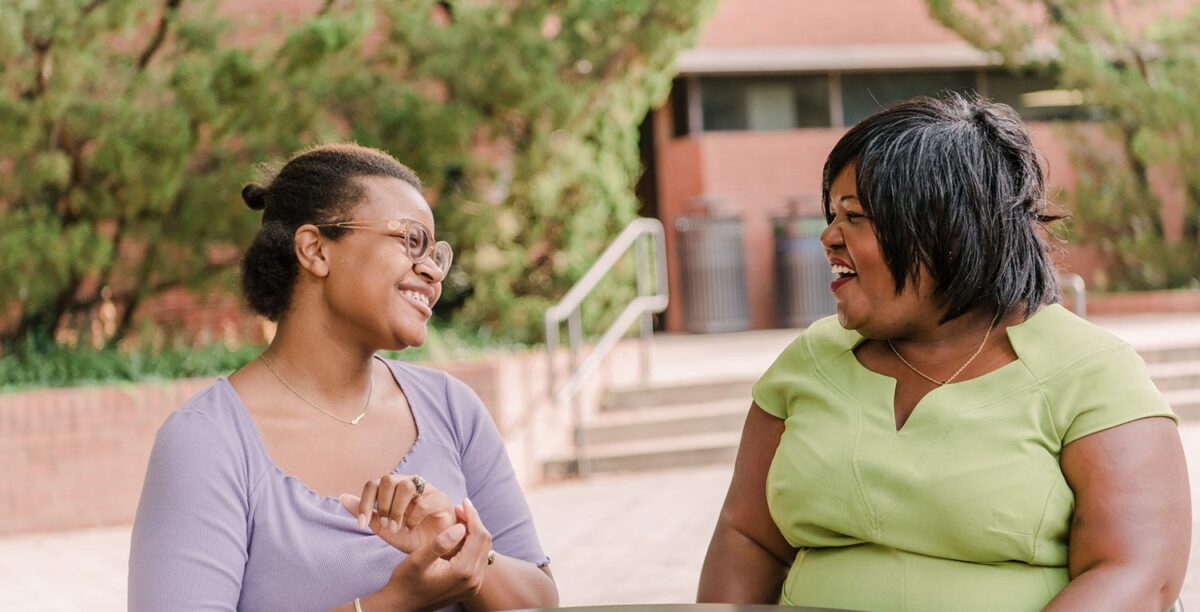Today’s 18 to 24-year-old college students are expressing anxiety, depression, suicidal ideation, and other related disorders at rates higher than previous generations, according to recent studies. The number of students treated by college counseling centers, according to the 2015 Center for Collegiate Mental Health Annual Report, has grown by more than five times the rate of institutional enrollment. The number of attended appointments has grown at more than seven times the pace of institutional enrollment. To address these changes on our own campus the last several years, UMBC has responded with a holistic approach to its health services and additional preventative and support resources for its students.
“We’ve begun integrating health and counseling with the goal of treating the whole person,” says Kim Leisey, UMBC associate vice president for student affairs. “We know some mental health issues manifest physically and vice versa, so our University Health Services (UHS) and Counseling Center staff work together to help students who may need support from both a physical and emotional perspective.”
This means, for example, therapists ask students when they had their last physical, and nurse practitioners screen for alcohol and drug disorders. Psychiatrists consult with both UHS and counseling staff, while case managers in each department work together on referrals and the insurance process.
The integrated approach will continue to expand and be implemented in a new combined health and counseling building, scheduled to open in 2021. In both formal assessments and individual interactions, UMBC students expressed strong desires to create integrated health structures that reduce stigma and promote self care. Vice President for Student Affairs Nancy Young says, “The new building will allow us to streamline and enhance services supporting the physical, behavioral, and emotional well-being of our students as a foundation for academic success.”
In a step beyond the traditional offerings, UMBC became the fourth U.S. university to add a trained comfort dog to its list of holistic services for students when Chip, a floppy-eared brown Labrador, joined the UMBC Police Department in fall 2019. The University’s Community Resource Sergeant, Jamie Cheatem, serves as the dog’s handler and says that one of Chip’s roles is to provide comfort to students during times of crisis and also during stressful periods during the academic year such as midterms and finals.
UMBC also began offering new recovery and sober living services to students this fall. The Haven at UMBC is part of a partnership between the Division of Student Affairs and The Haven at College, the leading national provider of treatment services and recovery support for college students with substance use and co-occurring disorders. At UMBC, Haven includes a recovery residence and outpatient center in separate locations near campus as well as mentoring and monitoring programs.
In addition to their traditional services, UHS and the Counseling Center offer a variety of support groups, workshops, and screenings to provide students with tools to cope with the stress of college life and managing emotions and distress. “We’re paying attention to wellness programs as well as in-person and online services that can help us reach a broader range of students,” says Bruce Herman, UMBC’s director of health and counseling.
Student peer health educators also assist in educating fellow students on a variety of physical and mental health issues. “Being able to go into the UMBC community and talk with different student groups about various behaviors and topics that impact their health is incredibly meaningful,” says Olivia Hardy ’20, health administration and policy, who works as a peer health educator.
“I love being able to actively contribute in minimizing students’ knowledge gaps,” continues Hardy. “We’re by no means professors or graduate students or staff—and in that, I think that we aren’t daunting. We’re just people students see in their classes, excited to help in any way we can.”
UMBC students, faculty, and staff have an opportunity to play a role in supporting students and other community members by participating in mental health training workshops offered by UHS and the Counseling Center. In addition to its support groups and resources, the Women’s Center offers workshops on supporting survivors of sexual assault and misconduct, while Campus Life’s The Mosaic: Center for Culture and Diversity launched a wellness series for students who identify as LGBTQ+.
UMBC community members who need help addressing situations where a person is displaying disruptive or threatening behavior can contact the interdisciplinary Behavioral Risk Assessment and Consultation Team, which includes Herman along with representatives from student affairs, psychology, human resources, UMBC police, and general counsel. Athletics’ new #RetrieverProject will work closely with student-athletes and members of the UMBC and Catonsville communities to help break stigmas associated with mental health through education and support.
Herman adds that campuswide involvement is critical for the university to address the growing need for mental health support and student success and focus on stigma reduction. “We have to see this work as not just about treatment but instead about co-creating an environment that supports students and their health, including mental health.”
— Eleanor Lewis
****
Header image by Marlayna Demond ’11.
Tags: BRACT, Counseling, Fall 2019, RetrieverProject, student life, The Mosaic, The Women's Center, UHS




